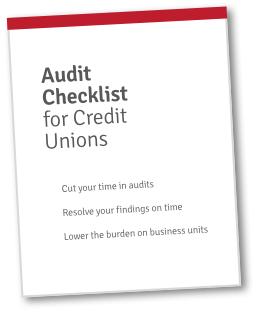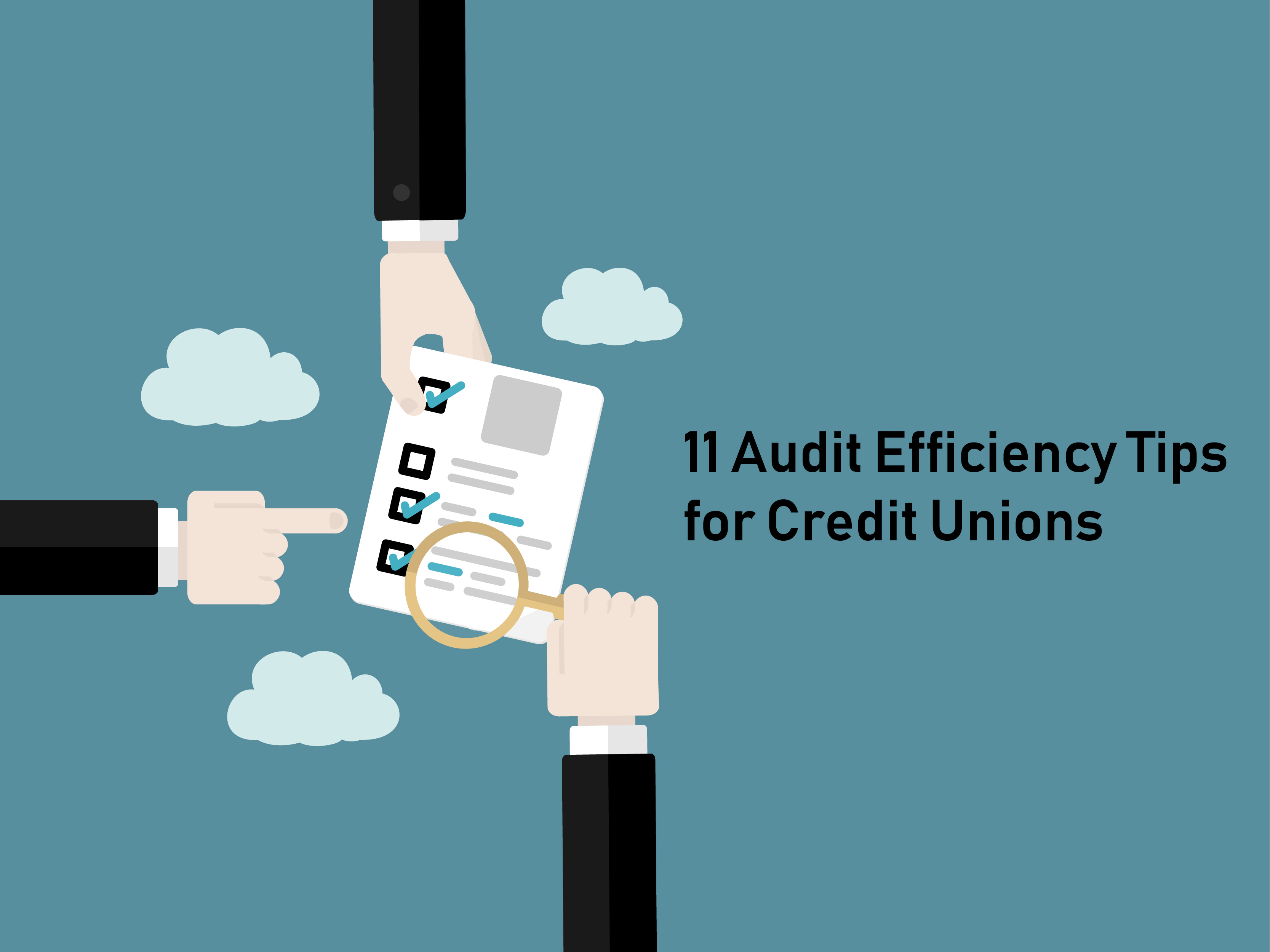For some credit unions, audits are an occasional nuisance. For others, they’re seemingly constant, all-hands-on-deck affairs.
Regardless of whether your credit union’s audit cycle is frequent and consuming or sporadic and inconvenient, one thing’s for certain:
You probably don’t want to get stuck in one for too long.
Audit Preparation Tips for Faster Audits
There aren’t many shortcuts through the audit process. Shortcuts are almost always a recipe for sloppy or inaccurate work. To minimize risk, avoid shortcuts.
Try these tips instead.
- Start early. Depending on what kind of audit or exam it is, think about who you’ll need to mobilize. Think about what they might need to provide. Bonus points if you can pull together the same team that completed the previous audit. Experience helps.
- Stay organized. The worst way to start your audit is by doing last-minute file management. You and your entire team should know where to find any and every document. This might seem obvious, but you’d be surprised how messy files can get when people take shortcuts.
- Establish good communication with your auditor. Before you start on your audit, you should know through which channels they want to receive communication: email, DropBox, USB, or audit management software such as Redboard. Ask them what format they’d like to receive files, answers, and documents. During the audit, stay in contact with your auditor. It’s okay to check in daily to ask if they need additional information, if they have any findings, and so on.
- Leverage the past. Reference past audit findings. Was there anything that gave you trouble? Looking at where you’ve been will get you ready for where you’re going. Reviewing previous audits will help you zero in on which areas you’ll need to pay close attention to.
- Prepare heavily. Your auditor may give a list of reports or other information that they’ll need. Proper preparation—providing the auditors what they need to get started—will significantly speed up the entire process.
- Review outside materials. What kind of audit is it? For credit unions, regulatory bodies often put together study materials. You can read about the AIRES questionnaires here or the NCUA Letter to Credit Unions here.
- Use a checklist. If you don’t have your own checklist, don’t worry. We’ve created a credit union audit checklist free to use. A good checklist will run through details you’ll need to prepare all angles of an audit.
- Maintain a paper trail. Keep records of teller cash counts. Keep records of management and board meeting minutes. Keep records of changes and updates during audits. Keep records of (basically) everything. If your auditor asks for an item and you have full documentation on that item, they will love you. More importantly, you will love you, too.
- Use audit management software. Keeping track of specific items, due dates, and key players is a big job. Memory alone probably won’t cut it. Spreadsheets fall short. Credit union audit software can help you stay on top of everything. Plus, it could shave 25% off your audit completion time.
- Take breathers. As with any difficult, detail-oriented work, people get tired. If you find you can’t focus, take a little break. If you can’t take a break, switch gears for a bit and work on a different task. Sometimes a change is as goo as a rest. Plus, when you return to the audit, you’ll have fresh eyes and new energy.
- Embrace automation. Not all aspects of the audit process can be automated. Some of the more tedious processes can be automated though. For example, communications, file organization and management, and the paper trail can all be automated.
This kind of automation doesn’t threaten jobs, but it does increase accountability and efficiency. Moreover, it empowers your audit team to complete their duties more quickly and accurately.

FREE: Audit Checklist for Credit Unions
4 key principles and 9 questions to jumpstart your audit planning. From leading credit unions.Further Audit Preparation and Efficiency Tips
The best audit efficiency tips are to work hard and bring experience to the table. Of course, we’re assuming that you’ve already got those covered. The tips above could still provide value beyond what hard work and experience can bring.
We hope you found our tips helpful. If you’d like to read more about credit union audit processes, tools, or strategy, follow our blog, or click on the links below!
AUDIT TEAM MEMBER RESPONSIBILITIES IN OTHER CREDIT UNION BUSINESS AREAS
CALCULATING THE ROI FOR CREDIT UNION AUDIT SOFTWARE





